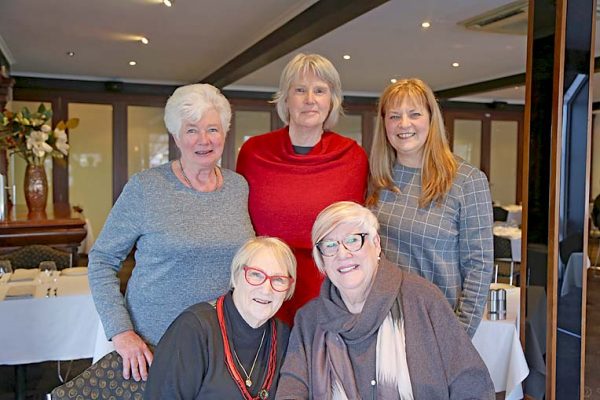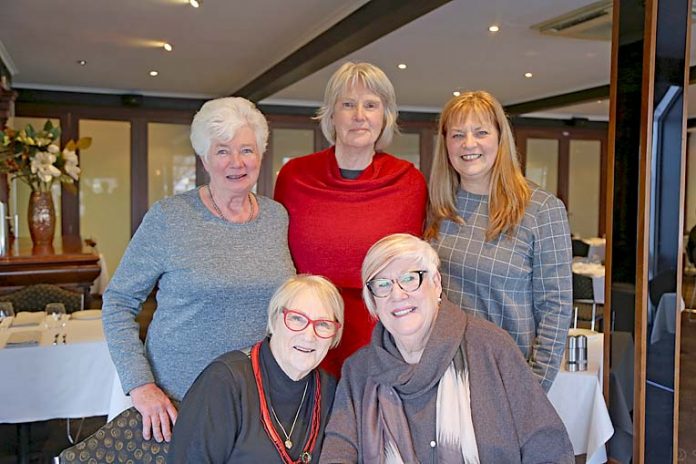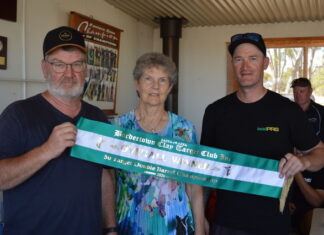
THE region’s peak therapeutic counselling and practical support service to victims of crime and abuse has shut its doors after three decades of operation.
The Mount Gambier Victim Support Service – which has supported thousands of victims from crimes ranging from sexual assault to robberies – has closed as a result of State Government funding cuts.
With close to 80 years of combined experience in court companionship, Victim Support Service coordinator Sonya Mezinec, former coordinator Virginia Hill and long-time volunteers Jenni Giles, Maree Lynch and Pauline Pritchard will no longer be able to support people during cases in court.
The volunteers physically sit with people who feel unsafe or distressed, be with witnesses giving evidence in remote rooms and refer people to community services.
Ms Lynch – who is a life member of the service and joined in October 1989 – said the court companionship program aimed to support witnesses and help make the court experience less stressful.
“In those days we would be mainly called on to support families of sexual abuse, including children,” she said.
“I was part of the South East Against Sexual Abuse group and we were running support groups for mothers of abused children and adult survivors, so I already had that experience.
“Later on, I worked with victims of domestic violence and in the late 90s, I was going to court with victims who were getting restraining orders.
“It was difficult, but I took it in my stride.”
Under state legislation, the court allows special arrangements for taking evidence from a witness in a trial in order to protect the witness from distress, embarrassment or intimidation by the courtroom environment.
“We also helped victims understand the court system, which is quite intimidating and most victims had never seen a courtroom beyond television,” Ms Giles said.
“Sometimes we would meet with them before they presented evidence and provide support.
“Most of the cases I supported were of a sexual nature or violence and I found my presence was useful after the victim had given their evidence.
“The victim would have to reveal some very intimate details and if they had family waiting for them, they often did not want to face them straight away.”
As well as providing moral support, Ms Giles said companions outlined what would happen in the court setting, outline the rights of an individual or help a victim get the services they need.
She said the court companion was particularly important for victims who testified against a defendant, but no conviction was recorded.
“There are three very important words in the legal system – beyond reasonable doubt,” Ms Giles said.
“You did as best as you could to prepare the victim because they might not get a conviction, but there were a lot of victims who just wanted to have their voice heard.
“It is a very thankless thing they do, but they could be protecting someone else and make sure no one else has the same experience as they did.”
Ms Hill agreed the presence of a court companion helped alleviate some stress a victim experienced while giving evidence.
“It is incredibly hard for some of the victims, especially the younger ones, to speak about what has happened,” Ms Hill said.
“They are often reluctant and they need a lot of encouragement.”
Ms Hill said originally victims and witnesses were required to face court, but the development of provisions for vulnerable witnesses helped make individuals feel more comfortable and focus on giving evidence without being distracted.
“Before the introduction of video conferencing, victims had to go to court and the defence would not be seated very far away,” she said.
“A screen was not always set up, which meant the victim could see the defendant which was a very intimidating situation.
“These were marvellous changes in terms of supporting victims in the court.”
Ms Pritchard said during instances in which young people were required to give evidence via closed circuit television, court companions were able to sit with the victim in the separate room.
“Their mothers or home support person were not allowed into the room, but we are,” she said.
“We were not allowed to talk to them in the room, but our presence could calm them down.
“Just being there and for the child to know they had support was important.”
The group was unanimous in agreeing family conferences – where a young offender, their parents, guardians, family and friends, the victim of the offence and their supporters and a police youth officer discuss the offence – was one of the most rewarding exercises.
“You really found out what was going on in the young person’s life and you could hear how the actions had affected the victim,” Ms Lynch said.
“For the first time, the offender got to see the impact of what they had done.”
Ms Mezinec, whose tenure at the Victim Support Service has now expired, said ultimately the service aimed to both support and empower victims of crime.
While conceding recounting experiences can be a difficult and sensitive process, Ms Mezinec said telling one’s story could be a meaningful process.
“Often for victims of crime, particularly when it involves sexual assault and domestic violence, victims can feel a huge sense of shame and start blaming themselves,” she said.
“If they do not get the positive result they are hoping for, the fact they are able
to stand up and tell their story can go to some way to heal.”








